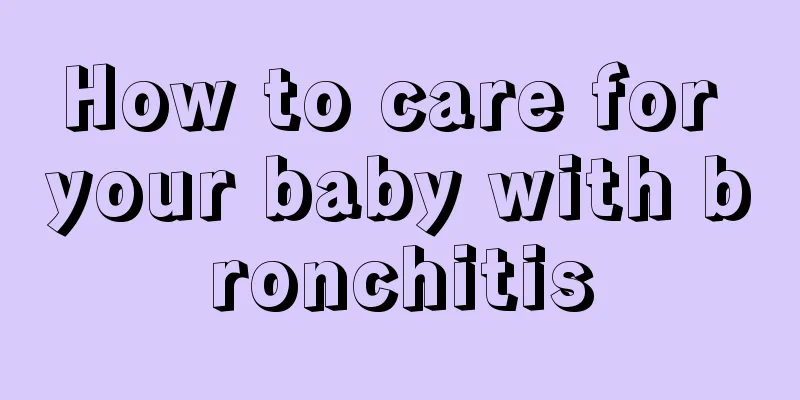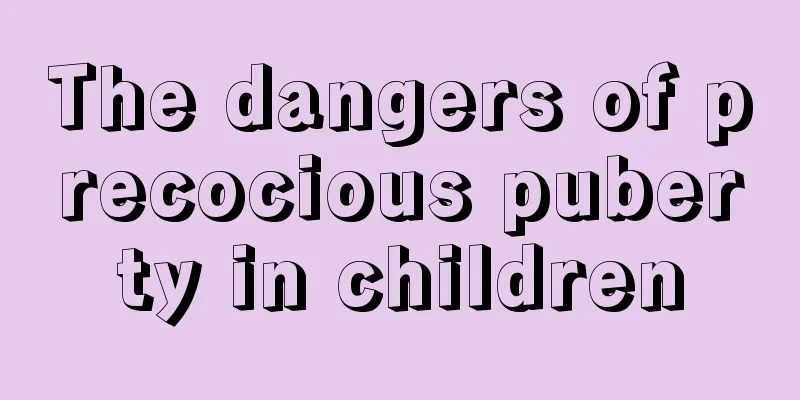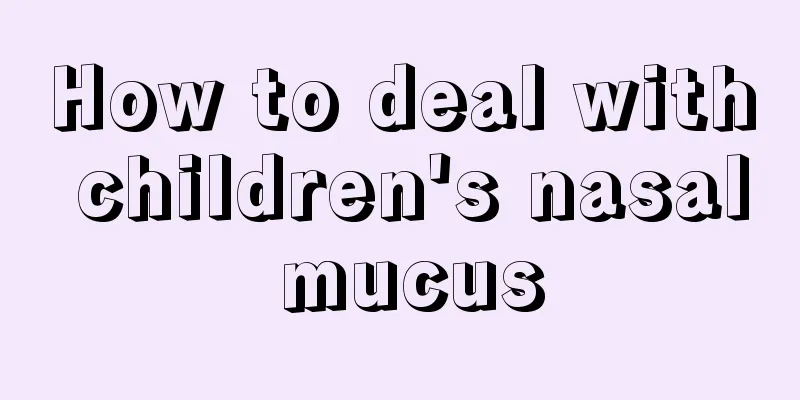Why does my child always have a low-grade fever?

|
Children have relatively poor resistance, so it is common for them to have fever symptoms. However, if the child has a low-grade fever for a long time, it means that the child has certain physical problems. For example, respiratory tract infection, urinary tract infection, otitis media and other diseases can cause the child to have symptoms of low-grade fever. Of course, some non-disease factors, such as high temperature, insufficient water intake, poor ventilation in the room, etc., can also cause children to have a low fever! 1. Why do children often have fever? 1. Non-disease factors: The baby's body temperature is easily affected by the external environment: high temperature (heatstroke), wearing too many clothes, insufficient water intake, water loss (sweating, diarrhea), poor ventilation in the room, before and after strenuous exercise, the effects of certain special drugs, and other factors such as preventive injections may also cause fever. If the body temperature becomes unstable, the possibility of illness should be considered. 2. Disease factors: (1) Fever in infants under 3 months old Bacterial infection is the most common (such as group B streptococcus); other infections such as respiratory tract, urinary tract, gastrointestinal tract or otitis media can also cause fever. The most serious infectious disease is sepsis. Therefore, when a newborn has a fever, it is important to take the baby to a doctor for examination so that early diagnosis and treatment can be given. (2) Fever in infants and young children older than 3 months The most common ones are colds, otitis media, and urinary tract infections. Otitis media is usually caused by bacteria or viruses from a cold infecting the middle ear through the Eustachian tube. Except for severe otitis media where pus can be seen flowing into the ear, most abnormalities cannot be seen from the outside. 2. What should I do if my child often has a fever? Here are three approaches to three types of fever: 1. Physical cooling is the first choice for intervention when the body temperature is below 38°C Fever is the most common symptom of infectious diseases in children. The treatment of fever can be roughly divided into "physical treatment" and "drug treatment". Generally speaking, when the child's body temperature is lower than 38°C, there is no need to use drug treatment, but choose the correct physical cooling method. For example, applying a fever-reducing patch, drinking plenty of water, and taking a warm bath can all help lower body temperature. 2. Infants and young children with a body temperature above 38.5°C need drug treatment If you find that your child's body temperature has exceeded 38.5℃, parents should closely observe the child's condition so as to respond in time. For infants and young children, when their body temperature exceeds 38.5℃, they need to be given medication. For Chinese medicine, you can choose Bupleurum or Antelope Horn. For Western medicine, you can choose Painline, Tylenol or Motrin. 3. If the body temperature is above 39°C, medication should be taken under the guidance of a doctor. When a child's body temperature exceeds 39°C and is considered a high fever, Western medicine treatment is usually chosen. Currently, ibuprofen and paracetamol are commonly used antipyretics in clinical practice. These two types of drugs are relatively safe. But one thing that must be made clear is that parents should use medication under the guidance of a doctor, especially paying attention to the dosage of the medication. |
<<: Why is my baby always sick?
>>: What should I do if my baby has a dent on his head?
Recommend
What kind of diapers are good to introduce
Some parents are very concerned about their child...
How to treat synovitis in children
I believe everyone must be very familiar with the...
How to prevent and care for sleep disorders in children?
Normal people sleep through the night, and some p...
What to do if your baby's nose is not straight
Many parents hope that their children will be bea...
What should I do if my baby’s thigh root is broken?
Before infants and young children learn any langu...
Baby's ear is scratched and water is flowing
For first-time mothers and fathers, the most impo...
What to do if a 7-year-old child has phimosis
It is common for children to have phimosis, and w...
Dry patches on the body like ringworm
We all know that babies have very fragile skin. T...
What to do if a one and a half year old baby has red bumps on his body
We all know that once there is a skin problem, it...
What to do if your child has trouble breathing while sleeping
It is the common wish of all parents that every c...
How to do early intervention for premature babies
Early intervention for premature infants is very ...
What is the cause of the child's abdominal effusion?
The health of children is a matter that concerns ...
What are the benefits of circumcision for little boys?
As people in modern society pay more and more att...
How many times does a baby poop in a month?
Children nowadays are always the treasures of the...
What should I do if I have a fever after taking the group A meningococcal vaccine?
Direct injection of group A meningococcal vaccine...









